| Course
Title |
: Embracing
Open Banking Payment System Framework
|
| Course
Duration |
: 2 Day
Face-To-Face Instructor Led Workshop
|
| Course Fee |
: Available
upon request (Write to us at info@tlcpak.com) |
| Course
Location |
: TLC
Office, Customer Onsite, and Online |
| Course Code |
: TN218 |
| Deliverables |
:
Comprehensive Student Guide and Workshop
Certificate |
This couse can also be conducted for customers at
their premieses in Karachi, Lahore, and Islamabad
PURPOSE:
We are on a mission to educate the
masses on the transformative potential working
knowledge of the digital emerging technologies.
This two-day workshop is designed to unfold all key
areas of Open Banking and the implications of platform
business models in the Banking and Financial
Services industry.
During this workshop, participants will learn an
understanding of open banking framework including
platform models, digital ecosystem; API architecture
and pillars of the Open Banking transformation,
insights on global market trends from regulatory
frameworks around the world to favorable business
momentum for new entrants and incumbent strategies to
build resilience, tools to comprehend and analyze
opportunities and risks of any Open Banking project
and API frameworks, as well as practices to structure
it's operational and technological aspects.
Although change is already underway, banks will
ultimately determine, through their own action or
inaction, whether that change is for the better or
worse. Those that are able to embrace open
banking will be the ones who effectively use data to:
inform decision-making and determine strategy; find
new customers and cross-sell existing products and
services; improve services; and build new
partnerships.
Instead of competing directly against fintech and
third-party institutions, incumbents can leverage open
banking to partner with them, and thereby remain
competitive in the rapidly evolving industry.
Open banking is a
technology-enabled approach to financial services that
utilizes aggregated and authenticated data, connected
via APIs, to give consumers more ways to consume their
financial data while also making transactions more
secure.
The best part of this course is that the concepts are
explained with the help of real examples. This means
you will get a good idea of the business problems
related to open banking technology. This course
uniquely presents counter fraud techniques and fraud
assessment tools used to combat latest methodology
& trends adopted by cybercriminals. An opportunity
to explore GDPR and PSD2 regulatory compliance.
The course features a detailed overview of the open
banking ecosystem, covering the various challenges and
open banking platforms in a broader prospect. You will
also acquire in-depth knowledge of different models
and types of roles of APIs strategy for banks
including a sound knowledge on securing them
with insight based on supported open banking
architecture framework.
ABOUT THE
INSTRUCTOR
Training will be delivered by an
experienced TOGAF 9 Certified trainer, practicing
TOGAF EAF for over 12 plus years,
with 25+ years of career experience imparting
education and training services both locally and
internationally and have served international
enterprise technology vendors including IBM,
Fujitsu, and ICL.
Our
instructor holds various industry professional
certifications in the space of enterprise servers
and storage technologies, Information Security,
Enterprise Architecture, Blockchain, ITIL, Cloud,
Virtualization, Green IT, and a co-author of 10
IBM Redbooks and have designed and developed 70
plus courses based on storage, information
security, cybersecurity, enterprise architecture,
Blockchain, open banking Framework and digital
technologies stacks.
The training course
flow will be a mix of lectures, video demonstrations
and classroom discussions so that participants can
have a detailed understanding of various components of
technologies causing digital disruption.
TARGETED
AUDIENCE:
This workshop is
intended for resources who/from:
- Banking, FinTech s, Third Party
Services Provider, Insurance, Software Development
Houses, and all other organizations developing
their financial applications using APIs.
- CIO, CTO, CISO,
CITO, Business Leaders, VP/IT Director and IT
Managers, Application/Database teams, Audit, Risk
and Compliance, Information Security and
Cybersecurity Professionals, IT Operations, Project
Managers, Enterprise Architects, Network Operation
Teams, and Legal professionals with a familiarity of
basic IT/IS concepts who want to;
- Want to learn
new trends in security and data breach incidents and
how SOC can help in protecting your mission critical
business data.
- Senior
Technology Professionals and Business Technology
Leaders who want to up skill their present set of
knowledge in the space of open banking framework.
WORKSHOP KEY
TAKEAWAYS:
- Open banking
is a technology-enabled approach to financial
services that utilizes aggregated and authenticated
data, connected via APIs, to give consumers more
ways to consume their financial data while also
making transactions more secure.
- Although change
is already underway, banks will ultimately
determine, through their own action or inaction,
whether that change is for the better or
worse.
- Instead of
competing directly against fintech and third-party
institutions, incumbents can leverage open banking
to partner with them, and thereby remain competitive
in the rapidly evolving industry.
- Those that are
able to embrace open banking will be the ones who
effectively use data to: inform decision-making and
determine strategy; find new customers and
cross-sell existing products and services; improve
services; and build new partnerships.
- Customer intelligence is a great
place to start discovering the inputs that will
shape the strategy.
OPEN
BANKING IN THE BUSINESS WORLD AND RELATED
CHALLENGES:
- More than 9 in 10 financial
sectors accept that open banking is vital to their
organization. The demand for fast, hassle-free, and
personalized banking and financial services among
customers is driving the rapid adoption of open
banking.
- For open banking to function,
APIs are critical as they help create connectivity
between different stakeholders for the transfer of
financial data. Banks and financial institutions
give third-party service providers/ fintech
companies access to customers personal and
financial data to develop innovative services and
products.
- Despite the regulatory
frameworks and compliance requirements, using APIs
widens the attack surface and increases security
risks. How can you overcome them?
PREREQUISITES:
Participants
attending this workshop should be familiar with basic
Information Technology (IT) and Security concepts,
business challenges and the role of general system
wide infrastructure technologies and their
applications. The course assumes that learners have
zero knowledge of open banking and advanced
authentication process used to mandate data privacy
including general regulatory compliance's.
COURSE
OUTLINE
Unit 1 -
Open Banking - A New Era in Banking Industry
- Problems and
Challenges with Traditional Banking.
- What kind of problems
holds banks back to step up to open
banking?
- Understand what is an
API, what are API used for, and how are
APIs implemented.
- Open Banking defined.
- Opening the data to
3rd parties creates opportunities for
Consumers.
- Open Banking and open
banking What's the difference?
- Open Banking Regulatory Framework in Pakistan.
- The Three main
Objectives of Open Banking.
- The Role of API s in
Bundling and Unbundling The Concept.
- Securing the API
Attack Surface The bigger Challenge.
- How does Open Banking
work?
- How Open Banking
works in Practice?
- Relationship between
AISP & PISP.
- High-level Open
Banking Architecture and key requirements.
- Risks attached to
Unbundling that you should know.
- Who own the Customer
and Data in Open Banking?
- Open Banking in
Pakistan.
- Three types of APIs
and API Framework.
- Types of open banking
API Specifications.
- Understand Variable
Recurring Payments (VRPs).
- Open banking payments
vs other payment methods.
- Strong Customer
Authentication.
- A High-Level Open
Banking Framework.
- Enrolling with open
banking as a Third Party Providers and
Technical Service Providers.
- Unit 1 Assessment.
Unit 2 -
The Role of Secure API's Strategy for
Banking
- Growing competition
and Customer demand.
- API Evolution Creates
New Activities for Bank IT Leaders.
- What is API strategy?
- The key challenge in
implementing API strategy.
- Understand API
Lifecycle Management.
- Steps in
accomplishing successful API Management in
Banking.
- API Exposures and
Connections.
- Incorporate security
into the development processes.
- How APIs are used and
Frequency of API Updates.
- Types of API Security
Incidents and their Impacts.
- Attacks continue
despite Security solutions in place.
- Top API Security
Challenges.
- Types of API
vulnerabilities that are of greatest
concern.
- How Open API Works
and Open Banking Models.
- Four pillars of
Banking API Strategy.
- Banking API Strategy
Implementation Steps.
- Benefits of the
Banking API Strategy.
- Top Objectives and
Monetization Strategies of API Adoption.
- How banks can benefit
from the API-based approach?
- Types of API
Strategies for Banks.
- Strategies in an Open
Banking Environment.
- The best practices
for API Security in open banking.
- Open
Banking Reference Architecture
Framework.
- Unit 2 Assessment.

|
Unit 3 -
The Foundation of GDPR and PSD2
Regulatory Compliance
- To address security
threats, leaders must avoid common myths.
- Understand Incident,
Breach, Vulnerability and Risk - Recap.
- Major Open Banking
Standards.
- Why open banking
Standards are important?
- Data Protection and
Privacy Laws A Little History.
- GDPR Defined Why
there is a need for Data Privacy?
- Why Data Protection
and Privacy is important?
- Data Protection
Challenges.
- Data Recovery
Response Times The Biggest Challenge.
- What information goes
into Protecting Data?
- Understand Data
Protection Family Tree.
- GDPR Personal Data
Types.
- Knowing your GDPR
Rights? A Human Right Law.
- GDPR Compliance
Benefits.
- What are GDPR s Key
Principles?
- GDPR Recommended Best
Practices in 7 steps.
- PSD2 A European
Regulation for Electronic Payment
Services.
- The PSD2 Reference
Architecture for an ASP.
- PSD2 Legislation
Scope and Regulated Payment Services.
- AISP and PISP
Regulated Payment Services workflow.
- Advanced
Authentication Process to Mandate Data
Privacy.
- Why SSA is important
for open banking?
- PSD2 and GDPR: how do
they work together?
- Example of how PSD2
and GDPR work together.
- Explicit consent
under the PSD2 and GDPR.
- Unit 3 Assessment.
Unit 4 -
Counter Fraud and the Open Banking
Ecosystem
- Fraud Detection and
Prevention Vs Cost of Data Breach.
- Open Banking key
challenges and their key findings.
- Digital Banking Fraud
Key Trends in 2023.
- Nine Principles of
Cybersecurity Laws to combat fraud.
- Security and Counter
Fraud Guidance.
- Ecosystem Banking
Defined.
- Counter Approach to
Protect The Open Banking Ecosystem.
- Counter Fraud
Step-wise Approach and Counter Fraud
Strategy Framework.
- Counter Fraud
Principles and Counter Fraud Operations.
- Counter Fraud
Assessment Tool and how it works?
- Building Trust in the
Financial Digital Ecosystem.
- Why Blockchain can be
considered as a solution for Open Banking?
- Blockchain
Architecture for Open Banking.
- Why Blockchain and
Open Banking goes together?.
- Can Blockchain
eliminate all Frauds in Open Banking?
- How AI and Machine
Learning can turn the tide of fraud.
- Understanding Fraud
Risks attached to Open Banking.
- Open Banking: Common
Fraud Methods and Techniques.
- Real-time Risk
Analysis Technique.
- Unit
4 Assessment.
|
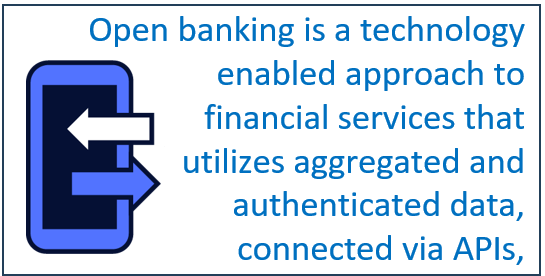  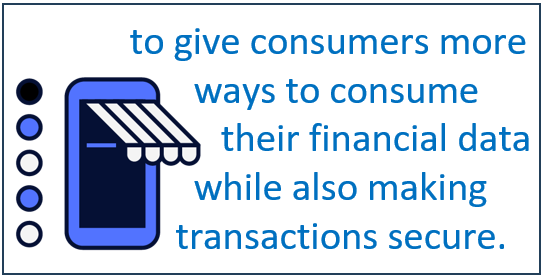 

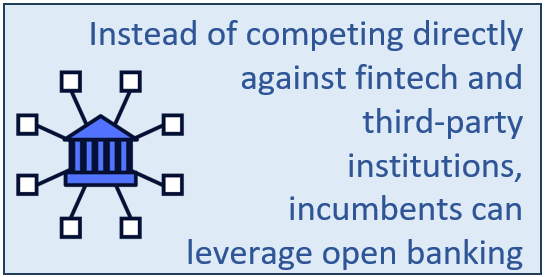  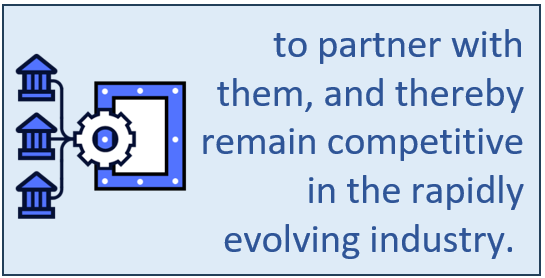  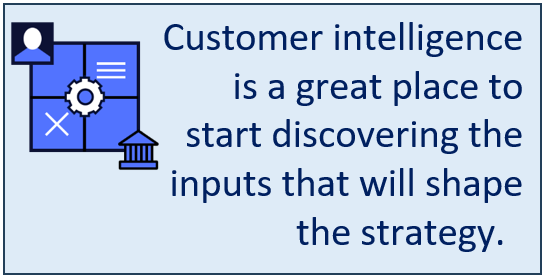

|









































